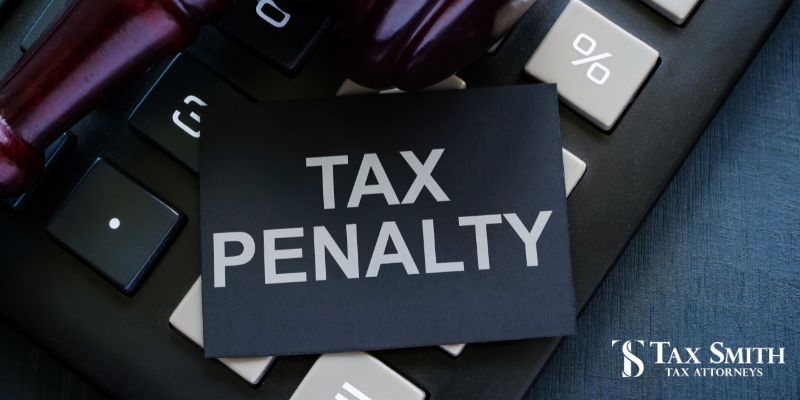1548 The Greens Way – Ste. 4 Jacksonville Beach FL 32250
St Augustine Penalty Abatement Attorney
St Augustine Penalty Abatement Lawyer
When you begin to accrue tax penalties, you are likely in a difficult situation brought about by other financial stressors. When sudden hardship or financial complications prevent you from filing your taxes on time, you may find yourself feeling overwhelmed and helpless. If you speak with a St. Augustine penalty abatement attorney, they can review your situation and determine if you are eligible for any alternate payment or debt relief program to lessen your debt.
The more you wait to do something about tax debt, the more it will grow. It’s important to be aware that there may be options for you to limit the tax liability you face. If you have received several interest penalties or are expecting to, you may qualify for penalty abatement. Although this will not address the initial payment, it can prevent interest from growing and worsening your debt and stress. Speaking with a trusted IRS tax attorney in St. Augustine can help you explore penalty abatement and other relief options.

TaxSmith, LLC: Your St. Augustine Penalty Abatement Lawyers
At TaxSmith, LLC, our team has decades of tax law experience and has helped many individuals and businesses in our community find solutions to their tax problems. There may be several legal routes available to you to solve, settle, or lessen your liability. Our attorneys can help you find what you qualify for and what is ideal for your wishes and interests.
Our firm was built on the values of respect and empathy. We understand how frustrating and stressful tax law and tax issues can be. We want to help you through the process, providing you with clear advice that pertains to your situation. When you have a difficult tax situation, we’re ready to help you.
Understanding Penalty Abatement
If you have not paid your taxes on time in St. Augustine, FL, you owe back taxes. On top of that, you may soon or already have late penalties and interest on those back taxes. Penalty abatement is when the IRS approves total or partial forgiveness of those penalties. Although you must still pay the back taxes, this can significantly lessen the financial strain you are under.
There are certain qualifications you must meet to be considered for penalty abatement. There must have been a reasonable cause that prevented you from making your tax payment on time, and you cannot have willfully avoided the payments. Depending on the circumstances, the reasonable cause may apply to one tax year or many.
Do I Need a Penalty Abatement Attorney?
A professional tax attorney can make a stressful situation much more manageable. There may be multiple options to help settle or limit your tax liability, depending on your past payments and situation. An attorney can help you gather important documentation to prove your reasonable cause. Filing for a penalty abatement will be much more efficient with a tax professional’s help.
Which Tax Penalties Qualify for Abatement?
Penalty abatement applies to certain types of penalties, including:
- Failure to file on time
- Failure to file
- Failure to deposit on time
- Underpayment of the required tax on an estimated payment slip
- Paying with a check on an account with insufficient funds
While some of these are one-time penalties, others will continue growing if the amount is not paid in full. Penalties could even grow larger than the back tax payments. If you are unsure whether your penalties qualify for abatement, talk with a tax professional. They can help you determine your qualifications and other options open to you.

FAQs About St Augustine, FL Penalty Abatement Laws
What Is a Reasonable Cause for Penalty Abatement in Florida?
A reasonable cause for penalty abatement means that there is an understandable reason why you were unable to meet your tax payment at the time. There are several reasons, including:
- You suffered a severe illness or were incapacitated
- There was an unavoidable obstacle, such as rehabilitation or prison
- Natural disasters or civil disturbances prevented you from obtaining the documentation or records needed
- You lost a close family member or loved one
- You were given bad advice or wrong information from a tax professional or from the IRS
How Does Penalty Abatement Work?
When a taxpayer fails to make their tax payments, their tax debt accrues penalty interest over time. Penalty abatement allows forgiveness of that interest and other penalties on tax debt for a taxpayer in certain circumstances. In order to be eligible for penalty abatement, the taxpayer must have a reasonable cause for not paying and cannot have purposefully failed to pay. Every case is unique, and it is up to the IRS to determine if a taxpayer qualifies for abatement.
The taxpayer is still liable for the initial payment, but the penalties may be removed. If not addressed, the penalties can add up to more than the tax payment.
How Do You Write a Penalty Abatement Letter?
A call or letter requesting abatement should have the following information:
- The notice you received from the IRS about the penalties
- The specific penalty and type of penalty that you are requesting the removal of
- An explanation of the reasonable cause that prevented you from making the payment
- Documentation to prove your case
A qualified tax law attorney can help you gather this information and properly present it in a call or letter. When the IRS reviews your request, they will review several other factors, including your past history of filing taxes.
How Do I Request an Abatement of Penalties and Interest?
When you call or submit the form to request an abatement, you want to show your attempts to file and pay your taxes and explain the situation that prevented you from doing so on time. You may include documents such as court records, hospital documentation, or proof of natural disasters.
A tax professional can review your unique circumstances and help determine how to present your reasonable cause that may enable you to receive penalty abatement. The IRS will consider factors such as your prior ability to make timely payments, your use of standard business care outside of this incident, and whether you relied on another individual to make your tax payments.
Let TaxSmith, LLC Help
If you faced difficult financial or personal circumstances that prevented you from filing your taxes, you may be able to limit or clear late penalties. Contact TaxSmith, LLC, today to see what options are available to you.
Locations We Serve
- Alabama
- Arizona
- California
- Colorado
- Connecticut
- Delaware
- District of Columbia
- Florida – HQ
- Georgia
- Idaho
- Illinois
- Indiana
REQUEST A CONSULTATION
Please fill out the Contact Request Form and a Tax Attorney/Paralegal will call you
to discuss legal representation or to schedule your free initial consultation





